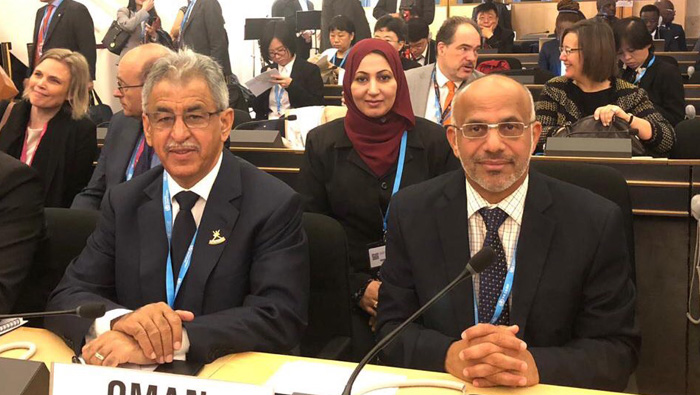
Muscat: The Sultanate’s Ministry of Health is currently taking part in the 72nd World Health Assembly, entitled “Universal Health Coverage: Leave Nobody Behind” where countries around the world are showcasing their commitment to UHC, among other issues.
The meetings, which began on Monday in Geneva and continue until May 28, will discuss the implementation of the 2030 Agenda for Sustainable Development Document, Universal Health Coverage, and public health emergencies, according to a statement by the Ministry of Health. The ministry added that its delegation is led by Dr. Ahmed bin Mohammed bin Obaid Al Saidi, the Minister of Health.
Dr. Tedros Ghebreyeseues, Director General of the World Health Organisation, spoke about the progress of Universal Health Coverage around the world and highlighted the case of Pantalis Leosis, an 80-year-old retired musician who has had cancer twice, and went to public hospitals and private healthcare. According to Ghebreyeseues, “Thanks to Greece’s system reform, he now has a primary healthcare clinic just 10 minutes from his house, where he pays nothing.”
In Oman, the CMA and the Ministry of Health have begun working on the healthcare regulations and Dhamani system, where expats and citizens covered by the new mandatory health insurance will each be entitled to OMR3,000 of treatment per year.
According to Dr. Ghebreyeseues, countries around the world are taking steps to improve access to healthcare.
The Director General also said, “Universal Health Coverage is a human right. No one should become poor because of poor health.”
Still, expenses remain a problem for many people, as he added, “Every year, more than 800 million people incur catastrophic health expenses, and 100 million people are pushed into extreme poverty by out-of-pocket payments.”
According to Oman’s Ministry of Health, “The meetings address progress reports on some health issues and a number of administrative, financial and organizational matters.”
The statement by the Ministry added, “The meetings discuss the reports of the main committees, strategic priority matters such as polio eradication, health, environment and climate change, access to medication and vaccines, as well as follow-up to the high-level meetings of the United Nations General Assembly on health-related issues.”